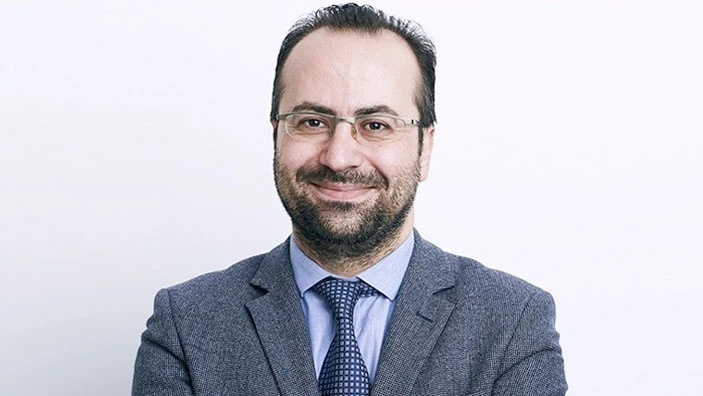Associate Professor in Finance
Director of the MPhil in Finance Programme
Co-Director of the Centre for Endowment Asset Management (CEAM)
BS (Middle East Technical University), MSE (Princeton University), PhD (London Business School)
My research interests include corporate governance, ownership and control, corporate social responsibility, private equity, and dynamic investment strategies. I have served as a part-time consultant to a hedge fund on establishing trading strategies. I was previously an Assistant Professor of Finance at the Carroll School of Management at Boston College.
I’m a member of the Finance subject group at Cambridge Judge Business School, which focuses on the investment and financial decisions of firms and institutions.

Corporate engagement and voting are critical elements for effective and good environmental, social and governance (ESG) policies in firms.
Professional experience
Dr Oğuzhan Karakaş brings extensive teaching experience to the Business School’s Master of Finance (MFin), MPhil in Finance, EMBA, and Executive Education programmes. He has developed and delivered innovative programmes emphasising sustainability and corporate control, launching new courses within the MFin, EMBA, MBA, and Executive Education curriculums, as well as enhancing existing programmes with impactful sessions. His core courses include Economic Foundations of Finance, Corporate Finance, and Sustainable Finance.
In Executive Education, Dr Karakaş has co-designed and led pioneering programmes, including the Essentials of Sustainable Finance, the BNP Paribas Leadership for Change programme for 600 executives, and a global ESG training initiative for KPMG’s 227,000 employees worldwide. His expertise also extends internationally, with contributions to programs for organisations such as Allianz, China Life and Invesco, focusing on sustainability, leadership, and finance amid evolving global challenges.
He consulted for a hedge fund, advising on the establishment of trading strategies, and is a member of the Cambridge Corporate Governance Network (CCGN).
Previous appointments
Oğuzhan Karakaş was an Assistant Professor of Finance at the Carroll School of Management at Boston College prior to joining Cambridge Judge Business School.
Publications
Selected publications
- Evans, R.B., Karakaş, O., Moussawi, R. and Young, M. (2026) “Phantom of the Opera: ETF shorting and shareholder voting.” Management Science (DOI: 10.1287/mnsc.2023.01567) (also available online via the SSRN) (published online May 2025)
- Karakaş, O., Dimson, E. and Li, X. (2021) “Coordinated engagements.” Harvard Law School Forum on Corporate Governance, 22 January 2021
- Karakaş, O. and Mohseni, M. (2021) “Staggered boards and the value of voting rights.” Review of Corporate Finance Studies, 10(3): 513-550 (DOI: 10.1093/rcfs/cfab004)
- Dimson, E., Karakaş, O. and Li, X. (2017) “Local leads, backed by global scale: the drivers of successful engagement.” PRI: Principles for Responsible Investment, 19 September 2017
- Feldhütter, P., Hotchkiss, E. and Karakaş, O. (2016) “The value of creditor control in corporate bonds.” Journal of Financial Economics, 121(1): 1-27 (DOI: 10.1016/j.jfineco.2016.03.007)
- Dimson, E., Karakaş, O. and Li, X. (2015) “Active ownership.” Review of Financial Studies, 28(12): 3225-3268 (DOI: 10.1093/rfs/hhv044)
Many of Dr Karakaş’s papers are available via the Social Science Research Network.
Journal articles
- Evans, R.B., Karakaş, O., Moussawi, R. and Young, M. (2026) “Phantom of the Opera: ETF shorting and shareholder voting.” Management Science (DOI: 10.1287/mnsc.2023.01567) (also available online via the SSRN) (published online May 2025)
- Gurun, U.G. and Karakaş, O. (2026) “Earnings and the value of voting rights.” Financial Management (DOI: 10.1111/fima.12502) (published online Apr 2025)
- Karakaş, O., Dimson, E. and Li, X. (2021) “Coordinated engagements.” Harvard Law School Forum on Corporate Governance, 22 January 2021
- Karakaş, O. and Mohseni, M. (2021) “Staggered boards and the value of voting rights.” Review of Corporate Finance Studies, 10(3): 513-550 (DOI: 10.1093/rcfs/cfab004)
- Dimson, E., Karakaş, O. and Li, X. (2017) “Local leads, backed by global scale: the drivers of successful engagement.” PRI: Principles for Responsible Investment, 19 September 2017
- Feldhütter, P., Hotchkiss, E. and Karakaş, O. (2016) “The value of creditor control in corporate bonds.” Journal of Financial Economics, 121(1): 1-27 (DOI: 10.1016/j.jfineco.2016.03.007)
- Dimson, E., Karakaş, O. and Li, X. (2015) “Active ownership.” Review of Financial Studies, 28(12): 3225-3268 (DOI: 10.1093/rfs/hhv044)
- Kalay, A., Karakaş, O. and Pant, S. (2014) “The market value of corporate votes: theory and evidence from option prices.” Journal of Finance, 69(3): 1235-1271 (DOI: 10.1111/jofi.12132)
Conference papers
- Hirst, S., Karakaş, O. and Yu, T. (2024) “Oracles of the vote: predicting the outcomes of proxy contests for board seats.” In: American Law and Economics Association Annual Meeting (34th), 17-18 May 2024, Ann Arbor, MI, USA.
Working papers
- Karakaş, O., Dimson, E. and Li, X. (2023) “Coordinated engagements.” European Corporate Governance Institute (ECGI) Finance Working Papers, No. 21/2021. Belgium: ECGI. (Available online via the SSRN)
- Gurun, U.G. and Karakaş, O. (2022) “Earnings and the value of voting rights.”
- Cornelli, F. and Karakaş, O. (2015) “CEO turnover in LBOs: the role of boards.”
- Karakaş, O. (2009) “Mean reversion between different classes of shares in dual-class firms: evidence and implications.”
Awards and honours
- Best Published Research Article, FIR-PRI Finance and Sustainability European Research Award, 2016
- Honorable Mention, IRRCi Research Award, 2015
- All Star Teachers, The Carroll School of Management – Boston College, 2014
- Moskowitz Prize for the Best Paper in Socially Responsible Investing (SRI), Berkeley-Haas and US SIF, 2012
News and insights
Research centre news
Honour for research on investor engagement
Paper by academics at the Centre for Endowment Asset Management at Cambridge Judge Business School is awarded Honourable Mention in the prestigious Moskowitz Prize for outstanding research on sustainable and responsible investing.
Finance and accounting
Natural, social and financial capitals
Explore the impact of financial development on biodiversity loss in Italy and learn how social capital influences financial growth.
ESG and sustainability
Do short sellers care about ESG (environment, social and governance)?
CERF Fellow Oğuzhan Karakaş, and research collaborators Pedro Saffi (a former CERF fellow) and Mehrshad Motahari (a former CERF Research Associate), analyse whether the short sellers can anticipate negative ESG incidences of firms, and make money from the negative price reactions to the news announcement of such incidences.
Media coverage
Cambridge Independent | 30 June 2021
From AI dysfunctions to privatisation debate
A recent summary of Cambridge Judge Business School research include studies on AI at workplace by Dr Stella Pachidi, privatisation and efficiency by Dr Kamal Munir, the concept of craft by Dr Jochem Kroezen, predicting energy use by Dr David Reiner, and staggered boards by Dr Oğuzhan Karakaş.
AMWatch | 28 March 2019
Active ownership as a catalyst for excess returns
Too many investment firms leave their active ownership duties to a team of ESG analysts instead of investment professionals. Engagement should be investor-led, according to one of the world’s largest asset managers that recently held a seminar in Copenhagen about its use of active ownership.
IEX Profs | 18 March 2019
Succesvol ESG-engagement zet koersen 7% hoger [Successful ESG engagement pushes prices up 7%]
Active ownership is not only becoming increasingly popular, it also clearly makes money. This is evident from research by Professor Oguzhan Karakas of the University of Cambridge. That is why there is also a voting premium on shares. [in Dutch]
Bloomberg | 28 June 2021
Investors will buy anything now
Your Money | 23 October 2020
How to use your savings to make a positive change in the world
Forbes, 8 September 2020
Inside the big threat to sustainable investing
Financial Times, 1 April 2020
Are ESG and sustainability the new alpha mantra?
Funds Europe, 17 September 2019
Inside view: Do investors have to sacrifice returns to invest responsibly?




